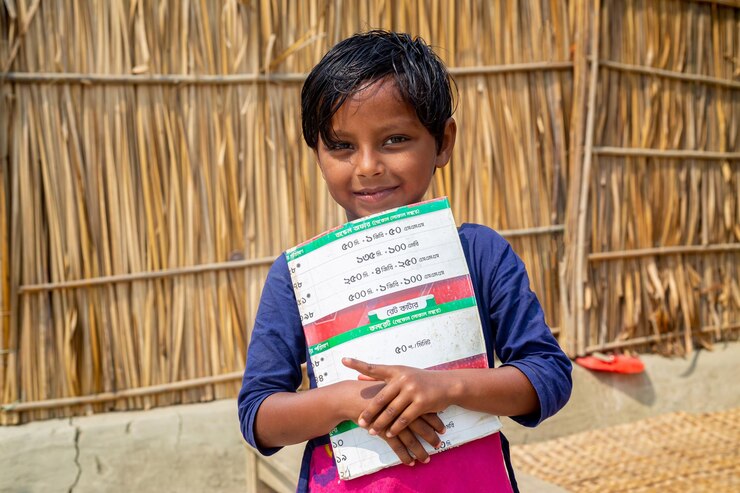How to Register an NGO in India (With 2024–2025 Legal Updates & Real Data)

Strong 8k brings an ultra-HD IPTV experience to your living room and your pocket.
Registering an NGO (Non-Governmental Organization) in India is the first step towards building a legally recognized platform for social change. Whether you want to work in education, health, environment, or women's empowerment, a registered NGO allows you to operate transparently, raise funds, and collaborate with government and CSR bodies.
As per NGO Darpan data (March 2024):
- Over 2.6 lakh NGOs are registered across India.
- Maharashtra, Delhi, UP, Tamil Nadu, and Karnataka have the highest number of active NGOs.
- Over 85% of CSR donations in FY 2023–24 went to registered and tax-compliant NGOs, mostly those with Section 8 Company structure.
In this detailed guide, we explain how to register an NGO in India, including types, process, costs, benefits, and legal tips to avoid rejection.
Types of NGO Registration in India
In India, you can register your NGO under any of these three legal structures:
| Structure | Governing Law | Min. Members | Area of Operation |
CSR Preference |
| Trust | Indian Trusts Act, 1882 | 2 Trustees | State/Local | Low |
| Society | Societies Registration Act, 1860 | 7 Members | State/National | Moderate |
| Section 8 Company | Companies Act, 2013 | 2 Directors | National/Global | High |
Important Note:
According to MCA records, more than 9,700 Section 8 Companies were registered in 2024 alone — a 22% increase over 2023. This shows a strong trend among serious NGOs moving towards structured, corporate-style governance.
Step-by-Step Process to Register an NGO in India
Step 1: Decide the Right Legal Structure
- Choose Trust for local-level activities with minimal compliance.
- Choose Society for member-based social groups or state-level associations.
- Choose Section 8 Company if you want:
- Strong governance
- CSR and foreign funding (FCRA)
- PAN-India presence
- Credibility with donors
Pro Tip: As per the CSR Amendment Rules, 2021 — companies prefer NGOs that are Section 8 Companies with valid 12A, 80G, and CSR-1 registration.
Step 2: Finalize Name & Object Clause
Search name availability on MCA portal (for Section 8) or Registrar of Societies (for Society).
For Section 8, apply for RUN (Reserve Unique Name) service under MCA.
Include clear, charitable objectives like “education for underprivileged children”, “sustainable agriculture”, or “rural health awareness”.
Step 3: Draft MOA and Bylaws
Clearly state vision, mission, scope, operational area, and governance rules.
Use proper legal formatting and include board structure, meeting frequency, admission/removal of members, etc.
Add clauses required for 12A and 80G later (such as income reinvestment, winding-up clause, etc.).
Step 4: Prepare Required Documents
Here's a basic checklist for Section 8 Company:
- PAN & Aadhaar of Directors
- Address proof (utility bill not older than 2 months)
- Digital Signature Certificates (DSC)
- Passport-sized photographs
- Draft MOA and AOA
- NOC from the property owner + Rent agreement
- INC-9 (declaration by directors)
- DIR-2 (consent to act as director)
Step 5: Apply for Registration
Trust Registration:
Submit Trust Deed to Sub-Registrar in your district.
Pay stamp duty (varies by state).
Registration takes 7–15 days.
Society Registration:
Submit documents to State Registrar of Societies.
Attach MOA, bylaws, affidavits, and ID proofs.
Some states like Delhi and UP offer online filing.
Timeline: 20–30 days.
Section 8 Company Registration:
Apply online via MCA portal.
File SPICe+ (Part A & B), MOA (INC-13), AOA, INC-9, AGILE-PRO.
No stamp duty is charged for Section 8 registration.
Timeline: 10–20 working days (if documentation is correct).
Step 6: Apply for PAN, TAN, and Open Bank Account
Once the NGO is registered:
Apply for PAN and TAN through NSDL or MCA SPICe+ form.
Open a current account in the NGO’s name with the registration certificate and PAN.
Step 7: Apply for 12A and 80G (Compulsory for Tax Exemption)
As per CBDT Circular (2021), NGOs must:
Apply online on the Income Tax Portal using Form 10A.
Receive provisional 12A & 80G valid for 5 years.
File Form 10AB within 6 months of starting activities to get permanent approval.
Processing time: 4–8 weeks
Fee: NIL (Govt fee is zero, but CA/legal professional charges may apply)
Step 8: File for CSR-1 (For CSR Funding)
If you want to receive CSR funds from companies under Section 135 of the Companies Act:
Apply Form CSR-1 on MCA portal (mandatory since April 2021).
Digital signature of NGO + CA/CS/CMA certification required.
Only NGOs with 12A, 80G can apply.
Cost of Registering an NGO (Approximate)
- Type Legal Fee (₹) Govt Charges Time
- Trust 5,000–8,000 ₹100–₹1,000 (Stamp Duty) 10–15 days
- Society 6,000–10,000 ₹500–₹2,000 20–30 days
- Section 8 Company 8,000–15,000 ₹0 (Stamp duty exempt) 15–20 days
Note: Professional charges vary based on city and consultant.
Benefits of NGO Registration
- Legal recognition for contracts, bank accounts, ownership
- Access to tax exemptions (12A) and donor benefits (80G)
- Eligible for CSR, FCRA, and international funding
- Improved credibility with corporates and government
- Transparency through audit and regulatory compliance
In FY 2023–24:
Over ₹25,000 crore CSR funds were spent in India.
80%+ funds went to NGOs registered under Section 8 or well-compliant Trusts/Societies with 12A/80G and CSR-1 status. (Source: MCA Annual CSR Report 2024)
Real Compliance Mistakes to Avoid
Not filing annual returns (Form 10B or ITR-7 for NGOs)
Skipping ROC filing for Section 8 (Form AOC-4, MGT-7A)
Failing to update change in address or board
Accepting large donations without PAN, violating Income Tax norms
Final Thoughts
If you’re serious about launching a legally strong and fund-ready NGO in 2025, starting with the right structure and documentation is crucial. With increasing compliance scrutiny, choosing a Section 8 Company gives your NGO higher trust, wider access to grants, and long-term sustainability.
Note: IndiBlogHub features both user-submitted and editorial content. We do not verify third-party contributions. Read our Disclaimer and Privacy Policyfor details.







